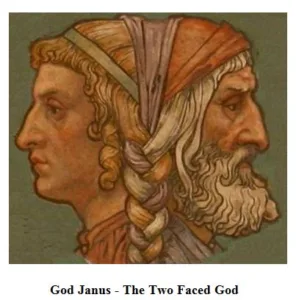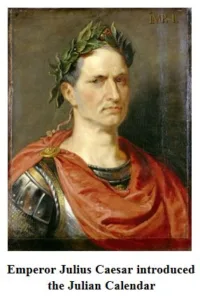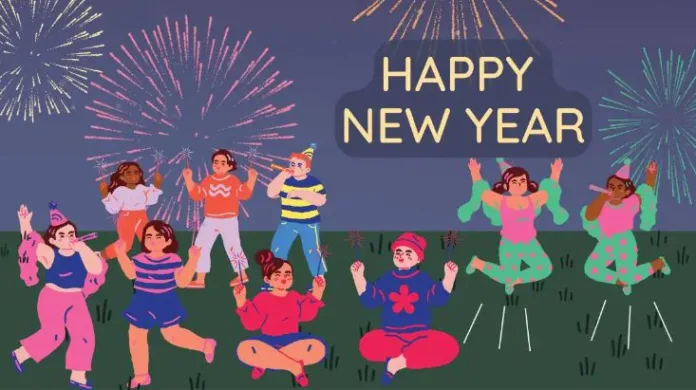Ringing of New Year- a day to kickstart on vibrant mood-Puri
Jaswant Singh Puri
New Year is the day to kickstart on vibrant mood with some good resolutions for the coming year. It is the time when different cultures celebrate the day in different manners. Gregorian Calendar, Julian Calendar and the Roman Calendar also love to enjoy New Year on January 1st called New Year’s Day which is preceded by New Year’s Eve. Some cultures use Lunar Calendar or Lunisolar calendar according to their own customs. A number of countries throughout the world follow Gregorian Calendar but Lunar and Lunisolar Calendars are also in vogue. However, countries all over the globe celebrate New Year with gusto and enthusiastic spirits. New Year’s Eve is also known as Old Year’s Day or Saint Sylvester’s Day, who consider December 31 as New Year’s Eve which is celebrated with dancing, eating, drinking and watching fireworks. These delightful moments go on past midnight into January 1 called New Year’s Day amidst social gatherings.

A lot number of Christian Congregations have New Year’s Eve watch-night services. Moravians and Methodists along with Korean Community and African American Community follow a tradition called as “Watch Night” when they bid adieu with blessings to outgoing year and pray for Divine Favour in the upcoming year. Roman Catholic Church, Lutheran Church and the Anglican Communion observe January 1 as the Feast of the Circumcision of Christ. Roman Catholics honour Virgin Mary which is solemnized as Holy Day of Obligations. In the Jewish Religious Calendar, the year falls between September 6 and October 5. Chinese New Year is celebrated officially for a month beginning in late January or early February. The Japanese have a three day celebration from January 1 to January 3.
The Romans derived the name for the month of January from their God Janus. He had two faces-both backward and forward. It was the day to practice resolutions to get rid of bad habits and adopt better ones. Use of symbolic foods in many European countries is in vogue like eating cabbage or other greens to ensure peace and prosperity in the coming year. All through Asia, special foods like noodles, rice cakes, dumplings are consumed which is a common feature to symbolise long life coupled with wealth and bright future and fortune. Many people welcome the New Year with religious rituals as Hindus make oblations, Japanese visit Shinto Shrines of tutelary deities and Buddhist temples. Chinese pay their obeisance to Gods of the hearth, wealth and to predecessors.
India is a big country with diverse cultures. Every region has a unique culture and its traditions to celebrate the advent of New Year. People of Punjab celebrate the first day of Vaisakh month as the harvest festival. Sikh community also celebrates this day as the foundation day of Khalsa. Other states also celebrate in their own traditions and customs. Moreover, Goa, Bangalore, Mumbai, Delhi, Kolkata, Pondicherry, Gulmarg, Mcleodganj, Kerala etc. are some of the many places to enjoy the New Year.

People on the New Year wish each other by exchanging messages, greeting cards and gifts as a part of celebration activities. People love to enjoy joyful atmosphere with party, prayers and social feasts. In some Latin American cultures, it is a tradition to walk around the clock with an empty suitcase on New year’s Eve to signify travel and adventure in the coming year. We can plan our dream vacation and reflect on the year ahead. We should express our gratitude to friends and family members so that they feel brightened up by words of affectionate greetings.
It is exciting to know that New Year Eve is celebrated whose arrival dates back to some four thousand years to ancient Babylon. The Babylonians enjoyed this occasion with a religious festival called Akitu. This word is deduced from the Sumerian word for barley which is harvested in Spring. Moreover, they celebrated the mythical victory of the Babylonian Sky god Marduk over the Evil Sea goddess Tiamat. Even the practice of making resolutions for the New Year is considered to have originated among the ancient Babylonians who made promises to earn the favour of gods. It is also heartening to know that Julius Caesar, Emperor of 46 B.C. introduced the Julian Calendar which resembles the more Gregorian Calendar which is in vogue in most of the countries around the globe. Julius Caesar instituted January 1 as the first day of the year due to his honour to Roman God of Beginnings called Janu. Even Pope Gregory XIII refounded January 1 as New Year’s Day in 1582.
Let the New Year bring good things, good news, good events, lovely moments, lively journeys. Let the new future usher radiance, let the new year bring new treasures with lots of happiness. Let people be healthy and fortunate, let us gain confidence to learn from old mistakes; let us pray for peace and love, let us pray for those who have lost the way. Lord Tennyson’s extract from the poem ‘In Memoriam’ is remarkable to express the dawn of New Year:
“Ring out the old ring in the new;
Ring happy bells across the snow;
The year is going, let him go;
Ring Out the false, ring in the true.”
Note: This article is dedicated to Smt. Alka Puri, M.A. (Hindi, B.Ed.) who was the Secretary, Ladies Club, Punjabi University, Patiala during the tenure of Vice Chancellor Dr. S.S. Johal, awarded with Padma Bhushan in 2004. Smt. Alka Puri was the wife of Dr. Ajit Singh Puri and mother of Jaswant Singh Puri.
(The views expressed are personal)
December 31,2022













